“It is difficult to get a man to understand something, when his salary depends upon him not understanding it.”
Upton Sinclair
Sustainability skills and competencies are not only needed by sustainability professionals. Sustainability skills and competencies are also needed by people in other key business roles ensure the effective delivery of the organisation’s sustainability (CSR, CR & ESG) policies and objectives.
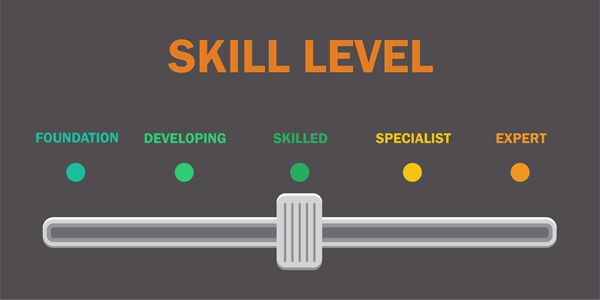
Effective sustainability performance requires staff and teams with a range of sustainability skills and competencies. They will also need skills in developing and delivering vision, strategy, targets and appropriate communications.
- Many companies ignore or paper-over organisation-level skills in preference to individual skills
- This approach can help individuals in the short-term but also constrains their ability to deliver at an organisational level leading to potential inefficiency and frustration
- Attention should be given to key gatekeeping or functional roles related to core business processes, and ensuring staff in these roles understand the interaction of their role with organisation’s sustainability objectives – and have the competencies to deliver against these
- Sustainability specialists need a set of skills drawn from a wide pool – depending on their specific roles, the industry they work in and the organisation’s objectives
- Staff in important roles with secondary responsibility for sustainability aspects will need specific role-related skills and competencies in sustainability
- If leadership/teams insufficiently understand the breadth, complexity and strategic importance of sustainability issues they won’t be able to lead and manage them successfully
Sustainability skills – not just for the sustainability team
In our work with companies, we often find that a focus upon organisation skills for sustainability (ensuring that skills to support sustainability are built across the organisation) is ignored in favour of individual skills for sustainability (employing a sustainability manager or director and their team).
While it is of course essential that there are suitably skilled and experienced professionals in a sustainability function, effective sustainability performance also requires the development of wider organisational understanding and capacity.
In addition, we frequently find that there are places within organisations where the development of suitable sustainability understanding, skills and engagement would play a significant role in effective implementation and buy-in.
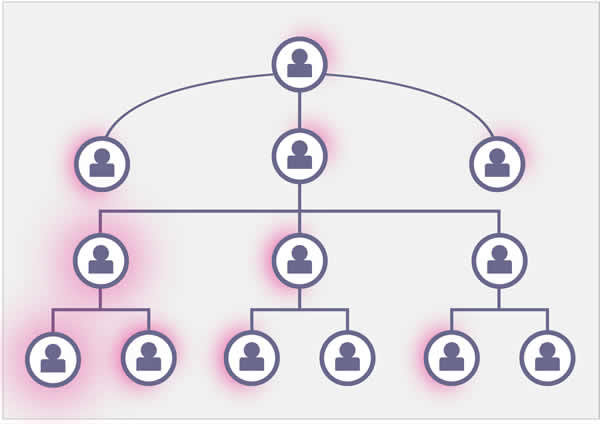
Anywhere within an organisation which plays a gatekeeping role of specific areas of technical knowledge, or whose activities have the capacity to either give rise to, or address, sustainability issues, should be targets for your sustainability skills development efforts.
Such areas would include (though not be confined to) leadership team, senior management (below the leadership team), procurement, risk, finance and operational functions.
Beyond the specialist – building organisational competency
The goal of any effective sustainability team should be to work towards the goal of providing guidance and direction for sustainability strategy, but the team should not be solely responsible for delivery.
Sustainability strategy that is intended to drive meaningful change in business practice should be owned and managed as an integral aspect of the operation of different parts of the business. Therefore, if your strategy requires change in the focus and priorities of procurement (for instance) then the Director of Procurement should own and drive this within their team, not the sustainability manager!
One of the biggest challenges we find in our work is that sustainability is too frequently seen as the ‘problem’ of the sustainability team, rather than of the whole organisation. This means that sustainability teams are often required to achieve change in business processes which are owned by others – and therefore they do not have the authority to ensure that change will take place. In addition, this can mean that different parts of the organisation are being measured (and performance valued) against competing criteria.
Does sustainability need special skills?
Yes – at least arguably a special set of skills, as roles can vary hugely.
- Sustainability is a professional discipline, it covers a vast territory of potential knowledge, from science and ecology to social impact, technical tools, understanding of strategy and operational planning and project execution processes and means.
- The most effective sustainability professionals combine specific sustainability skills and knowledge with an understanding of business process, practice and culture.
- Sustainability deals in interaction and interdependencies, probability and implications.
- Sustainability deals in detail but also the big picture – these require different methods and competencies.
- Sustainability requires comfort with uncertainty and the application of precautionary approaches.
- Sustainability requires a mix of technical (hard knowledge) and soft (culture change, advocacy and diplomacy) skills.
Building sustainability skills
As with any organisational priority, sustainability requires a sophisticated approach towards building organisational competencies, meaning that differing understanding and skills are required in different parts of the business.
Delivering sustainability requires a strategic approach to sustainability skills, some people will need more sustainability competencies than others, depending upon their roles and responsibilities in delivering change. However, it is true to say that if your company has a sustainability ambition it also has a need for sustainability skills.
The skills map developed by IEMA and the competency framework of ICRS (my professional institution) provide a good insight into what hard and soft skills and competencies are needed by people who are either wholly or partly responsible for the delivery of sustainability ambition.
Taking a strategic approach to skills
Organisations taking a meaningful approach treat sustainability like any other issue which has strategic implications for the company. This would involve:
- Identifying existing internal expertise
- Identifying staff requiring awareness/orientation training and those requiring in-depth competency development
- Identifying internal and external sources of training and support
- Including sustainability aspects in personal development plans.
But – there’s an important prerequisite to such a comprehensive approach and one that’s missing from many companies/organisations. There needs to be a strategic approach to sustainability, one that includes the whole enterprise and focuses on core business aspects. When this is lacking, sustainability specialists find themselves in an uphill struggle to convince other business areas of why sustainability is important, why they should be listened to and why they should help -something that will almost always be difficult against competing agendas and performance objectives.
So, what’s the take home in a nutshell? – you need a structured approach to recruiting and developing the right sustainability competencies and skills in the right parts of the organisation. This will contribute to the delivery of your sustainability plans. If there’s insufficient buy-in from leadership as to why sustainability should be a priority for your company – then that’s where you need to start.
DISCOVER MORE | Sustainability Training & Skills
Communicating Sustainability– how audiences value different language
To drive change in their organisations, sustainability professionals have to be effective influencers as well as content experts.
However, navigating how to develop the right messages for the right audiences can present a range of challenges, especially when sustainability can be complex, nuanced, …
Engaging leadership in sustainability – CFO
Engaging leadership in sustainability is vital – even in a large organisation with dedicated sustainability specialists. To ensure that sustainability becomes and remains a strategic priority, sustainability professionals need to work hard to get the organisation on board. You need to start with the …
Sustainability people that matter – engaging the CEO
To make sustainability a strategic priority, sustainability professionals need to work hard to get the organisation on board. They need to start with the positions, roles, places and people that matter. Here is Sheila, the CEO.
Sustainability Specialists
Why is it sustainability specialists can find their jobs both frustrating and lonely? It’s usually a wider business problem.
There are many reasons for this, some more visible than others. Based on real conversations, I look one of the main issues that often
underlies the frustration.
Portraits of sustainability – where are sustainability skills gaps?
Every organisation has sustainability skills gaps, but do you understand where they are and the problems they are causing?
Ensuring your organisation identifies and addresses skills gaps is crucial – it’s as important as getting your strategy right.
Sustainability Managers: key challenges to best practice
While sustainability management has in many ways entered the mainstream, practitioners are often hampered by resistance, apathy and misunderstanding.
There are many examples of excellence in specific areas, but few companies are pursuing a transformative agenda at significant scale.
As the …
So you want a career in sustainability?
Sustainability is vital – but also exciting – but what are the key things to bear in mind when thinking of a career in sustainability?


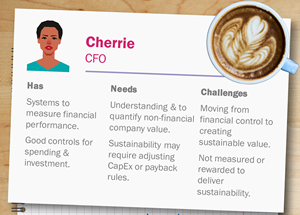
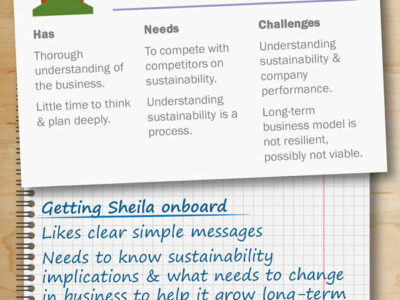

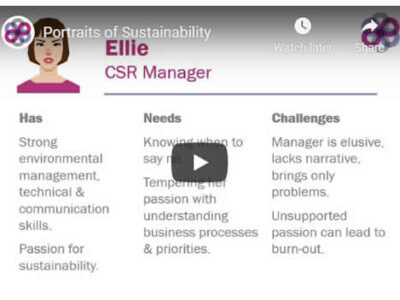



Leave a Reply